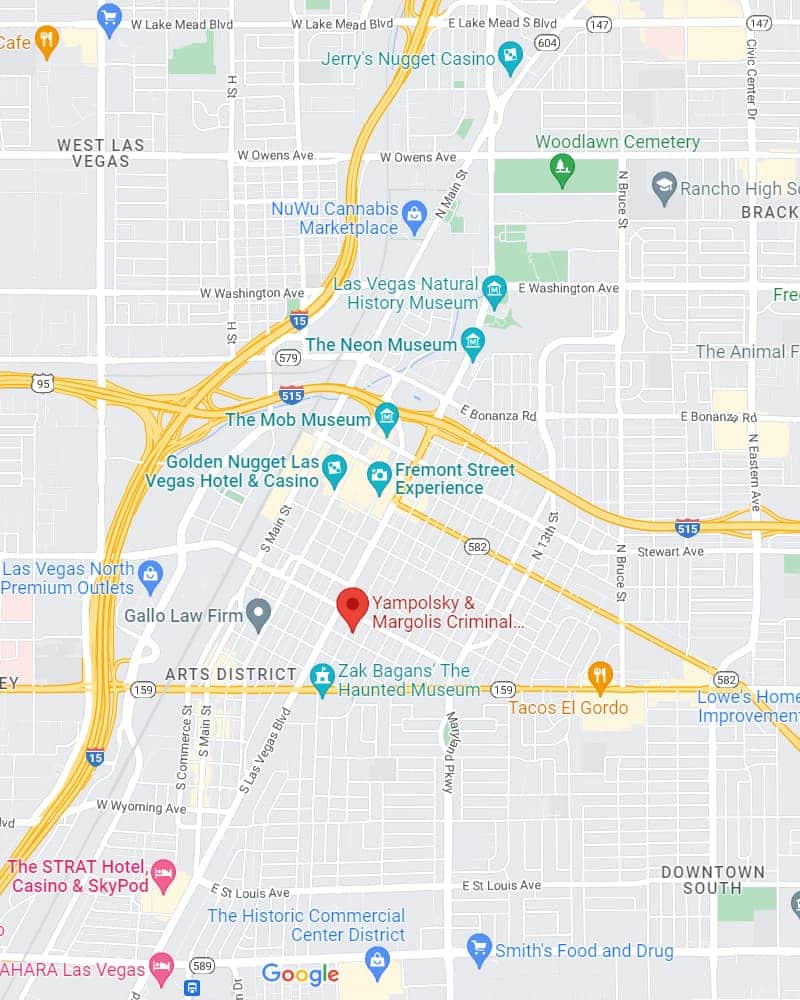Felonies And Gross Misdemeanor Crimes
The difference between a misdemeanor and a felony is that a misdemeanor will stay in justice court. The
most you could be sentenced to would be six months in the county jail and the highest fine would be
$1,000.
If you’re charged with a gross misdemeanor (GM)or a felony, you’d be entitled to a jury trial. The maximum
penalty is one year in the county jail and up to a $2,000 fine for a GM. If you are convicted of a felony,
you’d be subject to Nevada state prison for at least one year. There are lower level felonies that are one
to five years or one to six years and those are generally eligible for probation.
Some felonies are not eligible for probation, however. Those would include crimes such as sex crimes,
including lewdness with a minor under 14. In cases like that, the attorney will try and resolve it to
something that is probationable such as attempt lewdness or statutory sexual seduction. That would be
a gross misdemeanor or felony depending on the age and the sentence is one to five years in the state
prison but it is eligible for probation.






